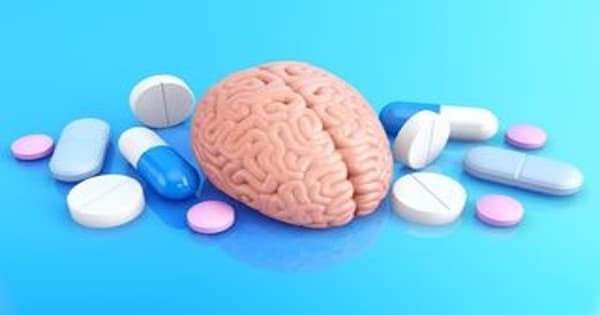According to a Rutgers researcher, early antibiotic exposure may alter human brain development in areas responsible for cognitive and emotional functions. Antibiotic exposure during childhood may have an impact on brain development in areas associated with emotional and cognitive function, according to a new study. Penicillin exposure in infant mice altered the microbiome and gene expression in key areas of the developing brain, according to the researchers.
The laboratory study, published in the journal iScience, suggests that penicillin affects the microbiome (the trillions of beneficial microorganisms that live in and on our bodies) as well as gene expression, which allows cells to respond to changes in their environment, in key areas of the developing brain. To avoid neurodevelopmental problems, the researchers recommend limiting widespread antibiotic use or using alternatives whenever possible.
Antibiotics are useful in the treatment of bacterial infections. They’re necessary in some cases of ear infections, strep throat, and bacterial sinusitis, but not all. The majority of childhood illnesses, on the other hand, are caused by viruses and thus cannot be treated with antibiotics. It is risky to use antibiotics to treat a viral infection: It destroys healthy bacteria in the body and may result in antibiotic resistance.
Early life is a critical period for neurodevelopment. Childhood neurodevelopmental disorders, such as autism spectrum disorder, attention-deficit/hyperactivity disorder, and learning disabilities, have become more common in recent decades. Although increased awareness and diagnosis are most likely factors, disruptions in cerebral gene expression early in development could also be to blame.
Martin Blaser
Penicillin and related antibiotics (such as ampicillin and amoxicillin) are the most commonly used antibiotics in children around the world. Before the age of two, the average child in the United States receives nearly three courses of antibiotics. Many other countries have similar or higher levels of exposure.
“Previously, we discovered that exposing young animals to antibiotics alters their metabolism and immunity. The third important development in early life involves the brain. This is a preliminary study, but it shows a link between changing the microbiome and changes in the brain that should be investigated further” Martin Blaser, director of Rutgers’ Center for Advanced Biotechnology and Medicine, is the study’s lead author.

The mice that were exposed to low-dose penicillin in utero or immediately after birth were compared to those that were not. They discovered that mice given penicillin had significantly altered intestinal microbiota as well as altered gene expression in the frontal cortex and amygdala, two key areas of the brain responsible for memory development as well as fear and stress responses.
A growing body of evidence connects intestinal phenomena with brain signaling, a field of study known as the “gut-brain-axis.” If this pathway is disrupted, it can cause permanent changes in the structure and function of the brain, as well as neuropsychiatric or neurodegenerative disorders in later childhood or adulthood.
“Early life is a critical period for neurodevelopment,” explained Blaser. “Childhood neurodevelopmental disorders, such as autism spectrum disorder, attention deficit/hyperactivity disorder, and learning disabilities, have become more common in recent decades. Although increased awareness and diagnosis are most likely factors, disruptions in cerebral gene expression early in development could also be to blame.”
Future research is needed to determine whether antibiotics have a direct effect on brain development or whether molecules from the microbiome that travel to the brain disrupt gene activity and cause cognitive deficits.
Antibiotics are not required for all illnesses. Giving them to your child when they aren’t needed can be dangerous, with some research indicating that it may be especially dangerous during the first year or two of life.
Many potential antibiotic risks are thought to be associated with disrupting the balance of bacteria in the microbiome (i.e. the healthy bacteria, fungi and viruses in our bodies, most of which live in our gut). The microbiome performs a variety of important functions, including bug defense and immune system support. Changes in the gut microbiome have been associated with an increased risk of infections, autoimmune diseases, and chronic inflammation.





